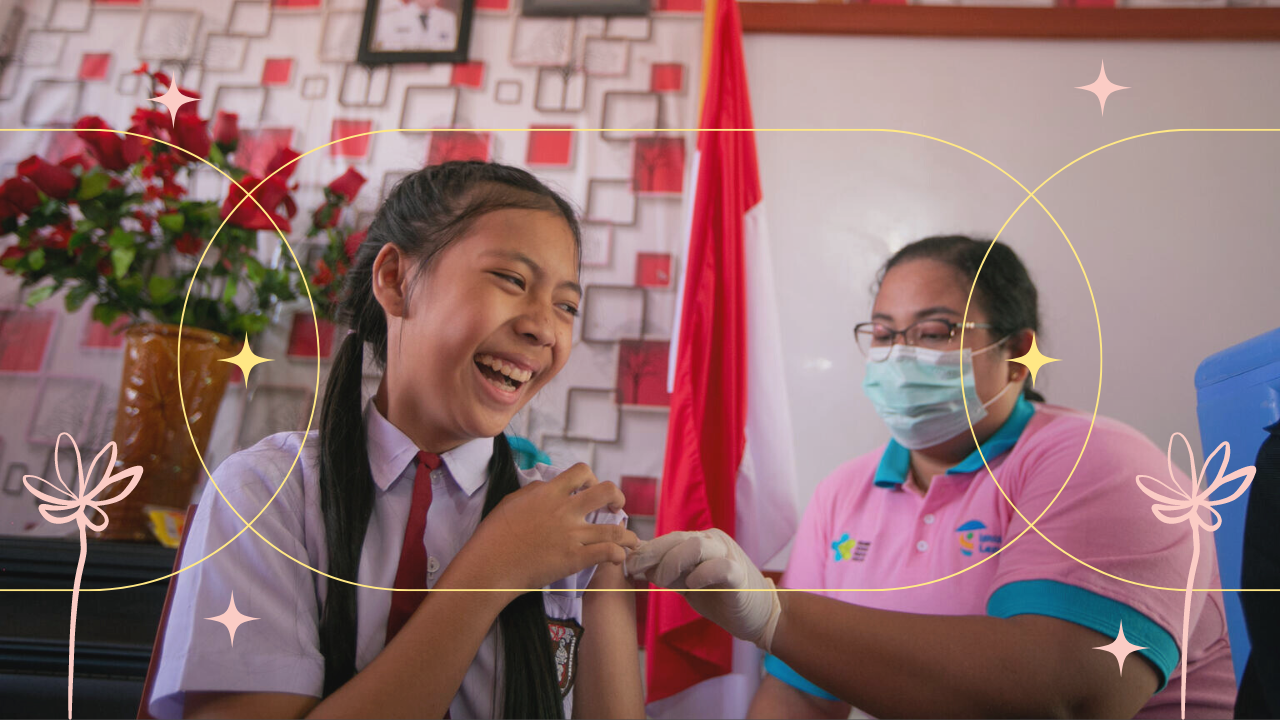Women and Vaccines: Bridging the Gap for Gender Equity
In honor of International Day of the Girl Child, we delve into an often-overlooked dimension of vaccine equity: reaching and empowering girls and women.

The pivotal role of vaccination in public health has recently been underscored by global health crises, particularly the COVID-19 pandemic and surges in diseases like measles, cholera, and malaria. However, the conversation surrounding vaccination and health generally often overlooks a crucial dimension that permeates all international development: rights for women and girls. Access to vaccines—or lack thereof—is more than a health issue; it’s a matter of gender equity and empowerment.
The Inequities of Vaccine Access
In women’s health, rampant inequality is no stranger. At the most basic scientific level, we know alarmingly little about women’s health and bodies. In fact, women were rarely included in clinical trials for any healthcare intervention prior to 1993—an astoundingly recent milestone. While efforts have been underway in recent years to address this disparity, complex gender-related barriers to access when it comes to vaccines still pose a huge problem.
In many areas of the world, systemic inequities severely limit women’s—and by extension, children’s—access to healthcare, including vaccines. Specifically in low- and middle-income countries, mothers bear primary responsibility for their and their children’s health, but often lack resources and decision-making authority to access vaccination services. This affects the health of these women themselves, but also their children’s; a study in Nigeria found that women with autonomy in decision-making were more likely to have their child fully immunized. The lack of such autonomy can have dangerous consequences.

Barriers such as a lack of education and cultural stigmas also disproportionately affect women and girls. Common misconceptions around the HPV vaccine—such as the fear that getting this vaccine would lead to girls being more sexually active, with no parallel concern for boys—are embedded in social norms and act as a barrier to immunization. Stigmas like this not only affect vaccine uptake but also perpetuate harmful narratives regarding women’s health and sexuality. Dispelling such stigmas requires comprehensive educational initiatives—such as the school-based HPV vaccination campaigns in Tanzania that pair health services with education, or similar sensitization efforts in Nigeria—to promote the facts and engage communities in open dialogue.
The Role of Women as Health Workers
Intriguingly, while women often encounter barriers to vaccine access, they constitute the majority of community health workers and vaccinators—making up about 64% of the health sector workforce in low- and middle-income countries and over 75% in high-income countries. Women are essential to mobilizing vaccination efforts, engaging with communities, and fostering trust in healthcare initiatives. Their contributions are particularly vital in areas where cultural sensitivity makes it challenging for their male counterparts to speak to mothers directly, such as during the facilitation of polio vaccine campaigns in Pakistan.

But even as they work tirelessly—often in unpaid roles—these women face regular sexism and gendered harassment that hamper the achievement of immunization coverage goals. Moreover, despite their massive role in providing on-the-ground health services, community health workers are rarely consulted on matters of health policy.
Today, new programs are underway to change this. Turning again to Pakistan, the country’s polio eradication program launched a new initiative to listen to and engage with underrepresented female health workers, effectively giving them a say in designing solutions to end polio in their country. But despite this and other similar programs, there is a long road ahead. By investing in training, support, and fair pay for female health workers, we can enhance the efficacy of vaccine campaigns and improve health outcomes for communities worldwide.

The Path Forward: Empowering Women and Girls
Around the world, women often bear the brunt of inequitable healthcare systems that do not prioritize their needs or value their autonomy. And they often face unequal access to many critical health services, including vaccines, even as they form the backbone of the healthcare workforce.
We can’t ensure vaccines for all without equality for the women who shoulder the responsibility of childcare, who build community trust, and who reach the hardest-to-reach families with lifesaving immunizations.
Achieving greater equity in global health means overcoming barriers and inequalities of geography, social status, income, and gender. From greater inclusion in clinical trials, to medical autonomy, to fair pay for female healthcare workers, we must continue advocating for change to address the gendered inequalities that persist across the healthcare system. This International Day of the Girl Child, we must renew our commitment to equal access to healthcare and fostering a just society for all.

